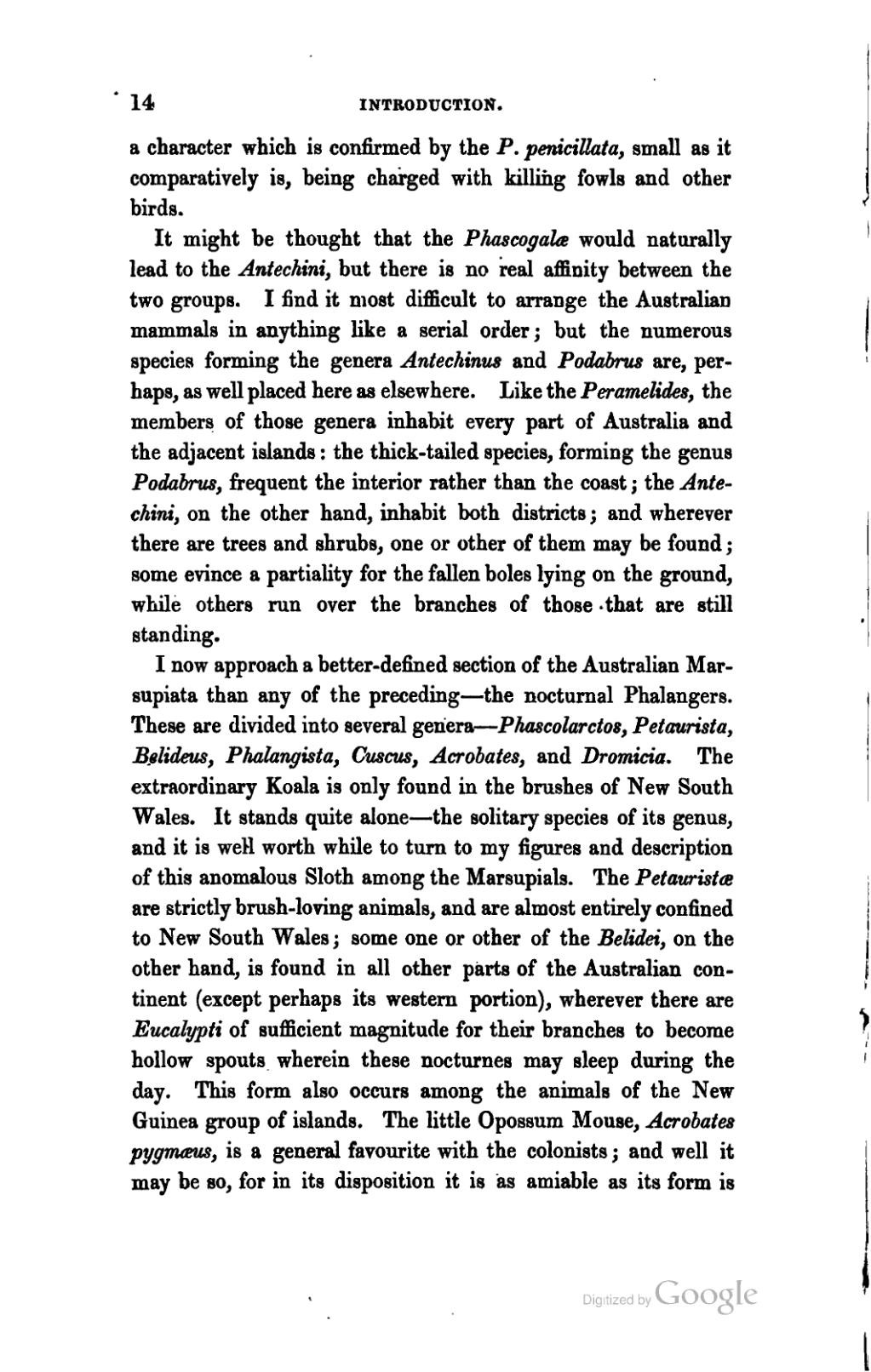a character which is confirmed by the P. penicillata, small as it comparatively is, being charged with killing fowls and other birds.
It might be thought that the Phascogalæ would naturally lead to the Antechini, but there is no real affinity between the two groups. I find it most difficult to arrange the Australian mammals in anything like a serial order; but the numerous species forming the genera Antechinus and Podabrus are, perhaps, as well placed here as elsewhere. Like the Peramelides, the members of those genera inhabit every part of Australia and the adjacent islands: the thick-tailed species, forming the genus Podabrus, frequent the interior rather than the coast; the Antechini, on the other hand, inhabit both districts; and wherever there are trees and shrubs, one or other of them may be found; some evince a partiality for the fallen boles lying on the ground, while others run over the branches of those that are still standing.
I now approach a better-defined section of the Australian Marsupiata than any of the preceding—the nocturnal Phalangers. These are divided into several genera—Phascolarctos, Petaurista, Belideus, Phalangista, Cuscus, Acrobates, and Dromicia. The extraordinary Koala is only found in the brushes of New South Wales. It stands quite alone—the solitary species of its genus, and it is well worth while to turn to my figures and description of this anomalous Sloth among the Marsupials. The Petauristæ are strictly brush-loving animals, and are almost entirely confined to New South Wales; some one or other of the Belidei, on the other hand, is found in all other parts of the Australian continent (except perhaps its western portion), wherever there are Eucalypti of sufficient magnitude for their branches to become hollow spouts wherein these nocturnes may sleep during the day. This form also occurs among the animals of the New Guinea group of islands. The little Opossum Mouse, Acrobates pygmæus, is a general favourite with the colonists; and well it may be so, for in its disposition it is as amiable as its form is
